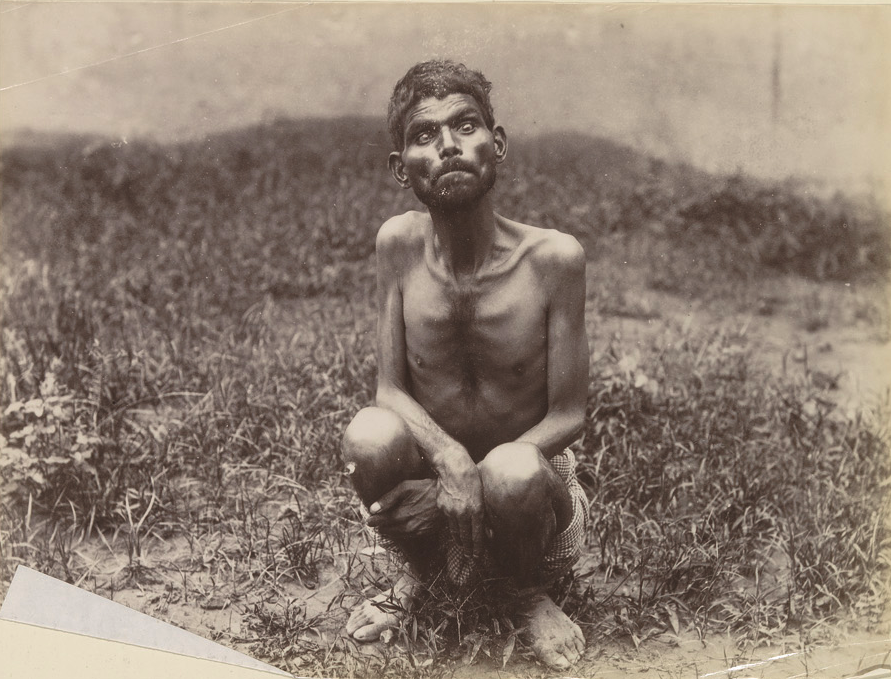Dina Sanichar on:
[Wikipedia]
[Google]
[Amazon]
 Dina Sanichar (1860 or 1861–1895) was a feral boy. A group of hunters discovered him among
Dina Sanichar (1860 or 1861–1895) was a feral boy. A group of hunters discovered him among
 Dina Sanichar (1860 or 1861–1895) was a feral boy. A group of hunters discovered him among
Dina Sanichar (1860 or 1861–1895) was a feral boy. A group of hunters discovered him among wolves
The wolf (''Canis lupus''; : wolves), also known as the grey wolf or gray wolf, is a canine native to Eurasia and North America. More than thirty subspecies of ''Canis lupus'' have been recognized, including the dog and dingo, though gr ...
in a cave in Bulandshahr
Bulandshahr, formerly Baran, is a city and a municipal board in Bulandshahr district in the state of Uttar Pradesh, India.
It is the administrative headquarters of Bulandshahr district and part of Delhi NCR region. According to the Governme ...
, Uttar Pradesh
Uttar Pradesh ( ; UP) is a States and union territories of India, state in North India, northern India. With over 241 million inhabitants, it is the List of states and union territories of India by population, most populated state in In ...
, India
India, officially the Republic of India, is a country in South Asia. It is the List of countries and dependencies by area, seventh-largest country by area; the List of countries by population (United Nations), most populous country since ...
in February 1867, around the age of
six.
Sanichar was sent to the Secundra orphanage at Agra
Agra ( ) is a city on the banks of the Yamuna river in the Indian state of Uttar Pradesh, about south-east of the national capital Delhi and 330 km west of the state capital Lucknow. With a population of roughly 1.6 million, Agra is the ...
, where he lived among other humans for over twenty years. He never learned to speak and remained seriously impaired his entire life.
Discovery
Dina Sanichar was discovered in a cave in the district of Bulandshahr and was brought to the local district magistrate and collector. He was subsequently sent to the Secundra orphanage atAgra
Agra ( ) is a city on the banks of the Yamuna river in the Indian state of Uttar Pradesh, about south-east of the national capital Delhi and 330 km west of the state capital Lucknow. With a population of roughly 1.6 million, Agra is the ...
.
At the orphanage he was given the name Sanichar (meaning Saturday) because he arrived on a Saturday. It was reported that he initially walked on all fours and ate raw meat. While he could not speak, he would make sounds similar to a wolf. He went on to live among other humans for over twenty years but never learned to speak, and remained seriously impaired his entire life. Sanichar was a heavy smoker.
Death and legacy
Sanichar died oftuberculosis
Tuberculosis (TB), also known colloquially as the "white death", or historically as consumption, is a contagious disease usually caused by ''Mycobacterium tuberculosis'' (MTB) bacteria. Tuberculosis generally affects the lungs, but it can al ...
in 1895 around the age of 34.
Sanichar may have been the inspiration for the character Mowgli
Mowgli () is a fictional character and the protagonist of the Mowgli stories featured among Rudyard Kipling's ''The Jungle Book'' stories. He is a feral boy from the Pench area in Seoni, Madhya Pradesh, India, who originally appeared in Kiplin ...
in ''The Jungle Book
''The Jungle Book'' is an 1894 collection of stories by the English author Rudyard Kipling. Most of the characters are animals such as Shere Khan the tiger and Baloo the bear, though a principal character is the boy or "man-cub" Mowgli, who ...
'' by Rudyard Kipling
Joseph Rudyard Kipling ( ; 30 December 1865 – 18 January 1936)''The Times'', (London) 18 January 1936, p. 12. was an English journalist, novelist, poet, and short-story writer. He was born in British Raj, British India, which inspired much ...
.
See also
* William Lowe (civil servant) *Feral Child
A feral child (also called wild child) is a young individual who has lived isolated from human contact from a very young age, with little or no experience of human care, social behavior, or language. Such children lack the basics of primary and ...
References
1895 deaths 1860s births Feral children 19th-century Indian people Indian people with disabilities 19th-century deaths from tuberculosis Tuberculosis deaths in India {{India-bio-stub